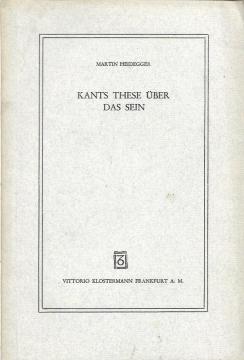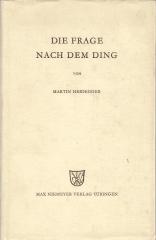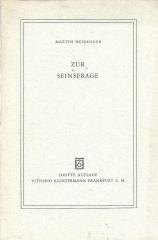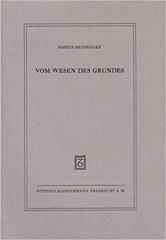
Kants these über das Sein
Kants These über das Sein, eine Vorlesung von Martin Heidegger aus dem Jahr 1930, konzentriert sich auf eine Analyse von Kants Behauptung, dass das Sein in Wirklichkeit eine Setzung sei – das heißt der Akt des Setzens oder Bestätigens durch Urteil.
Heidegger geht von Kants Behauptung aus, dass „Sein kein reales Prädikat ist“ – dass Sein also nicht als eine einem Wesen zugeschriebene Eigenschaft verstanden werden kann. Vielmehr bezeichnet Sein den Akt der Bestätigung im Urteil: Wenn wir sagen, dass etwas „ist“, bestätigen wir eigentlich seine Anwesenheit oder Existenz.
Heidegger entwickelt diese Idee, indem er argumentiert, dass Sein kein besonderes Sein oder eine Eigenschaft des Seins ist, sondern die Art und Weise, in der sich das Sein zeigt. Sein ist ein Akt des Zeigens, nicht ein Objekt unter Objekten.
Heidegger weist jedoch darauf hin, dass Kant, obwohl er wichtige Erkenntnisse bietet, im Rahmen der traditionellen Metaphysik bleibt, da er die grundlegende Frage nach dem Sein als solchem nicht aufwirft. Heidegger nutzt Kants These, um seinen Kerngedanken noch deutlicher hervorzuheben: Das Sein kann nicht vom Seienden her verstanden werden, sondern es bedarf einer besonderen, ursprünglichen Reflexion.
„Kants These vom Sein“ stellt somit einen wichtigen Punkt in Heideggers Bemühen dar, mit der metaphysischen Tradition zu brechen und den Weg für eine neue Art des Denkens über das Sein zu ebnen.
One copy is available
- Unterschrift des Vorbesitzers





